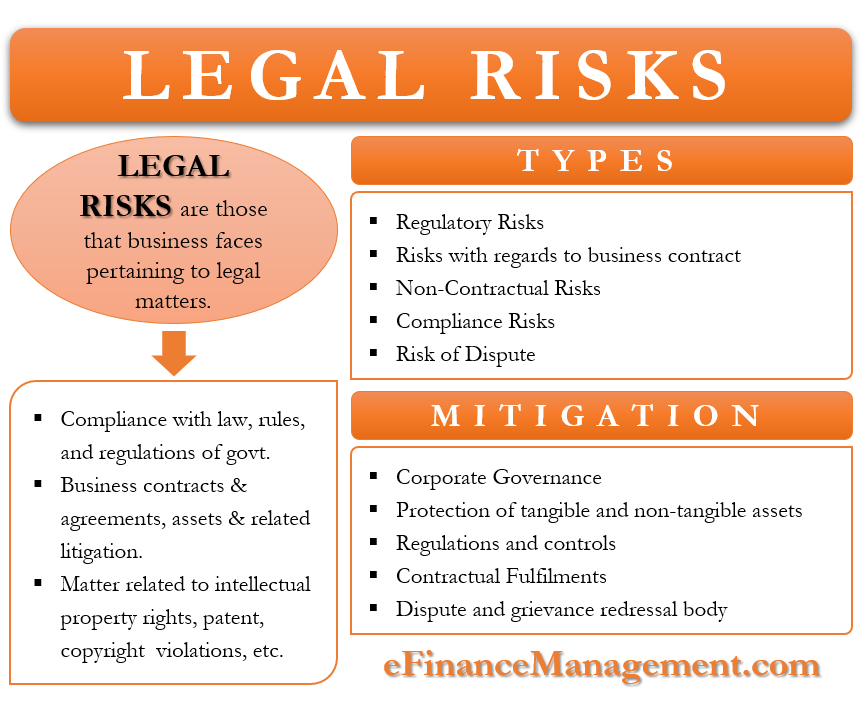
Running a successful business involves dealing with numerous challenges, including financial, operational, and marketing aspects. However, one crucial area that business owners often overlook is legal compliance. Failure to assess and mitigate legal risks can result in serious consequences, such as financial losses, reputational damage, and even legal disputes. Therefore, it is imperative for business owners in the tech industry to conduct a thorough legal risk assessment. In this article, we will discuss the importance of legal risk assessment and provide a comprehensive guide for business owners to ensure legal compliance.
Understanding Legal Risk Assessment:
Legal risk assessment involves identifying and evaluating potential legal risks that may impact a business. These risks can stem from various sources such as contracts, intellectual property issues, employee relations, data privacy, cybersecurity, regulatory compliance, and more. By conducting a comprehensive legal risk assessment, business owners can anticipate and address potential legal problems before they escalate.
Importance of Legal Risk Assessment:
1. Protection against Legal Liabilities:
By conducting a legal risk assessment, business owners can identify areas where they may be exposed to legal liabilities. For example, online businesses that handle customer data need to comply with data privacy regulations. Identifying compliance gaps early on enables businesses to take necessary actions to protect themselves against potential legal consequences.
2. Safeguarding Intellectual Property:
Intellectual property infringement is a significant concern in the tech industry. Conducting a legal risk assessment helps business owners identify and protect their intellectual property rights. Whether it’s trademarks, copyrights, or patents, understanding the legal implications and taking proactive measures can safeguard a business’s valuable assets.
3. Compliance with Regulations:
The tech industry is heavily regulated, with frequent changes in laws and regulations. Failing to comply with these regulations can result in severe penalties. By conducting regular legal risk assessments, business owners can identify any gaps in compliance and ensure that their operations align with applicable laws and regulations.
4. Mitigating Reputational Damage:
Legal disputes can tarnish a business’s reputation and lead to a loss of customer trust. Assessing legal risks allows business owners to take preventive measures to mitigate potential reputational damage. This may include implementing transparent business practices, ensuring ethical conduct, and being prepared for potential legal disputes.
Guidelines for Legal Risk Assessment:
1. Identify Potential Legal Risks:
Create a checklist of potential legal risks relevant to your tech business. This may include contracts, intellectual property, employment laws, data privacy, cybersecurity, regulatory compliance, and any industry-specific laws.
2. Evaluate the Likelihood and Impact:
Assess the likelihood and potential impact of each identified risk. This analysis will help prioritize risks that require immediate attention. Consider consulting legal experts who specialize in the tech industry to ensure a comprehensive evaluation.
3. Implement Risk Mitigation Strategies:
Develop strategies to mitigate identified risks. This may involve updating contracts, implementing employee training programs, enhancing cybersecurity measures, or seeking legal counsel to navigate complex regulatory frameworks.
4. Regularly Review and Update:
Legal risks are not static and can evolve over time. It is essential to regularly review and update your legal risk assessment. Stay informed about changes in laws and regulations that may impact your business and ensure ongoing compliance.
In conclusion, conducting a legal risk assessment is an essential step for tech business owners to protect their interests, assets, and reputation. By identifying potential legal risks, evaluating their impact, and implementing appropriate risk mitigation strategies, business owners can minimize legal liabilities and ensure compliance with relevant laws and regulations. Regular review and updating of the legal risk assessment will help businesses navigate potential legal hurdles successfully. Remember, when it comes to legal compliance, prevention is always better than facing the consequences of overlooking legal risks.


